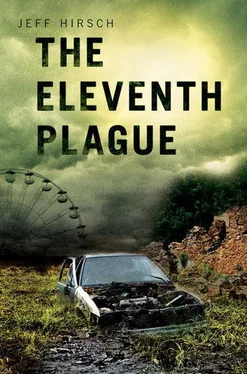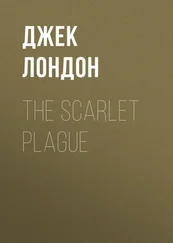Claudia considered that and, even if she didn’t seem totally convinced, she opened the book to the first page and began to read. It came slowly at first, like the words were nettled things too large for her mouth, but gradually they tripped out more and more easily. She read as the workers muscled up the roof and the wind blew the smells of sawdust across the grass. Other worlds.
I hoped it was true. That the leap of faith we all took was a beginning and not just a blip, soon to be wiped away like so much had been wiped away before. Like Mom and Grandpa and Dad. As much as things had changed, I still heard their voices and felt their hands guiding me, though their grip seemed looser each day.
Another family had already stepped forward to take Claudia in, just like the Greens had done for me. In time I hoped she would feel at home and the world would move on for her, leaving everything else safely behind.
By the time Claudia reached the second chapter, I could tell she had forgotten I was there. The words moved from the page and out of her mouth, like a mill wheel dipping into the water, lifting it up and casting it down again in a glittering shower. After a while, the workers took a break, moving off into the shade of the trees and swatting the sawdust off themselves. Even when the rest of the kids broke free from the school and poured into the yard in a riot of shrieked laughter, Claudia didn’t move.
Her words rose up into the air, up beyond the trees and into the sky.
I walked into town, past the scars from the fight with the slavers. The fires had spread quickly and destroyed more than half of the houses in town. The ones that couldn’t be saved were torn down and replaced by what were little more than rough log cabins, neat and warm but small. They were integrated with the houses that still stood, giving the neighborhood an odd mixed look of past and future. Though sometimes it was hard to tell which was which.
I headed out through the front gates and crossed the forest to the highway. Once I got to Dad’s grave, I knelt down beside it and carefully cleaned away the week’s accumulation of leaves and twigs and discarded acorns. The wood marker that sat at the head of the swell in the grass looked old and dry, the letters in his name already fading. I’d need to replace it soon. I used to come every day, but soon the demands of school and of a town that needed to be rebuilt kept me back.
Once I was done cleaning the grave I stayed there for a time and then leaned over the grass, pressing my hands deep into its waxy depths.
“Hey.”
I jerked my hands back and turned around to find Jenny standing over me, in a T-shirt and jean jacket. The bill of Violet’s old baseball cap was pulled down low over her eyes. Back near the tree line, her horse, Wind, was tied up and munching on grass. His sandy flanks glistened in the sun.
“You must have ridden him far.”
“Farthest yet,” Jenny said, pulling off her rawhide gloves and stuffing them in her belt before flopping on the ground next to me. “I swear I could see the Rockies.”
“You could not.”
“Well… it was something.”
“Any trouble?”
“Oh yeah,” she said. “Always.”
“You didn’t have to shoot anyone, did you?”
Jenny pulled off her cap and leaned on her elbows in the grass. The sunlight hit her face like a splash of cool water. “Not today, Steve-O. Not today.”
Jenny closed her eyes and lay down next to me, her chest rising and falling gently, a glisten of sweat like a mist of diamonds on her forehead.
As soon as things calmed down, Jenny had set about tearing apart the Starbucks down the highway and hauling it in pieces back to town. It had taken her weeks, but when it was done, she’d been able to trade it all for Wind and a rifle of her own. From that day on, she’d throw herself onto her horse and disappear, always heading west, always pushing a little farther each time, stretching the boundaries of her world like a rubber band.
Every time she came back, we would stay up late and she would tell me stories of the things she had seen, so excited you would have thought she’d uncovered a field of gold when it was no more than a new tract of houses, or an abandoned car rusting in the woods.
“You should have seen it,” Jenny murmured into the air above us. “Animals everywhere. Everywhere. I saw elk and mountain lions and beavers. I even found this whole herd of buffalo. Hundreds of them. Thousands maybe. I ran Wind right through them. It felt like flying.”
Her eyes were distant, locked on the cloudless blue, glazed with joy at remembering.
“Is today the day?” I asked… and immediately regretted it. Jenny’s eyebrows drew together, making a gloomy little wrinkle. She checked on Wind over her shoulder.
“I think so,” she said. “Maybe. I don’t know.”
I turned on my side to face her. I had said it a hundred times before and I’d say it a hundred times again. “It’s still dangerous out there.”
“I know that.”
“Dealing with the slavers wasn’t magic. There are others — the army and a thousand other—”
“I know, Stephen.”
Jenny turned onto her stomach. I plucked a blade of grass and settled it between my teeth. We had had this fight before. I knew when it was over.
“So, how’s shaping the minds of the next generation going?”
“I’m just helping out.”
“Then what?” Jenny asked. I could feel her staring at me. “Have you thought about it anymore?”
Jenny laid her head on my chest. Her breath went in and out, reminding me of a swing arcing up toward the sky and then falling again, over and over.
“Okay,” she said, and after a long while she drifted off.
I lay there, the heat of Jenny’s body beside me, the far-off smell of sawdust floating through the air.
Behind us, Wind shook his mane and stamped his foot into the grass, eager to be on his way.
“You ready, tough guy?”
When I opened my eyes, Jenny was adjusting Wind’s saddle and harness. Her rifle sat in a handmade leather case along his side. She pulled it out, checked it over, and replaced it. Then she drew on her gloves and cap and mounted Wind in one smooth, liquid motion.
Jenny guided Wind over to me. I pulled myself up onto the back of the horse between her and her rolled-up gear. Jenny turned Wind around and we trotted off toward Settler’s Landing, racing him when we reached the main road, his hooves making a machine-gun rattle against the asphalt.
We came to a halt out in front of the Greens’ just as Jackson stepped down off a ladder that led up to the house’s gutters. “Hey, cowgirl!”
Jenny slid down off Wind’s back. “Hey, Jackie boy! What’s happening?”
“I’m a gutter slave today,” he said, wiping the muck of wet leaves from his hands before giving her a quick hug. “Mom and Dad inside?”
“Yep.” Jackson pulled the ladder off the house and carted it around back. After Jenny got Wind tied up in the park across the street, we went inside to the smell of baking bread.
“Hey, you two!” Violet called out from the kitchen as we came in.
Marcus was coming down the stairs and grabbed Jenny as soon as he saw her.
“Whew! Somebody smells like a horse.”
“Yeah, I gave up on trying to make it go away.”
“Well, sit down,” Violet said. “We’ll have lunch ready in a minute.”
“So what’s out there these days?” Marcus asked once we’d all sat down and passed plates of food from hand to hand.
“It’s mostly quiet,” Jenny said, handing me a bowl of potatoes. “I hear about more towns going up though. Little ones, but it won’t be long until it gets crowded around here.”
“Are you talking to people?” Violet asked, trying to sound casual but under the table she was probably twisting a napkin into tight knots.
Читать дальше












